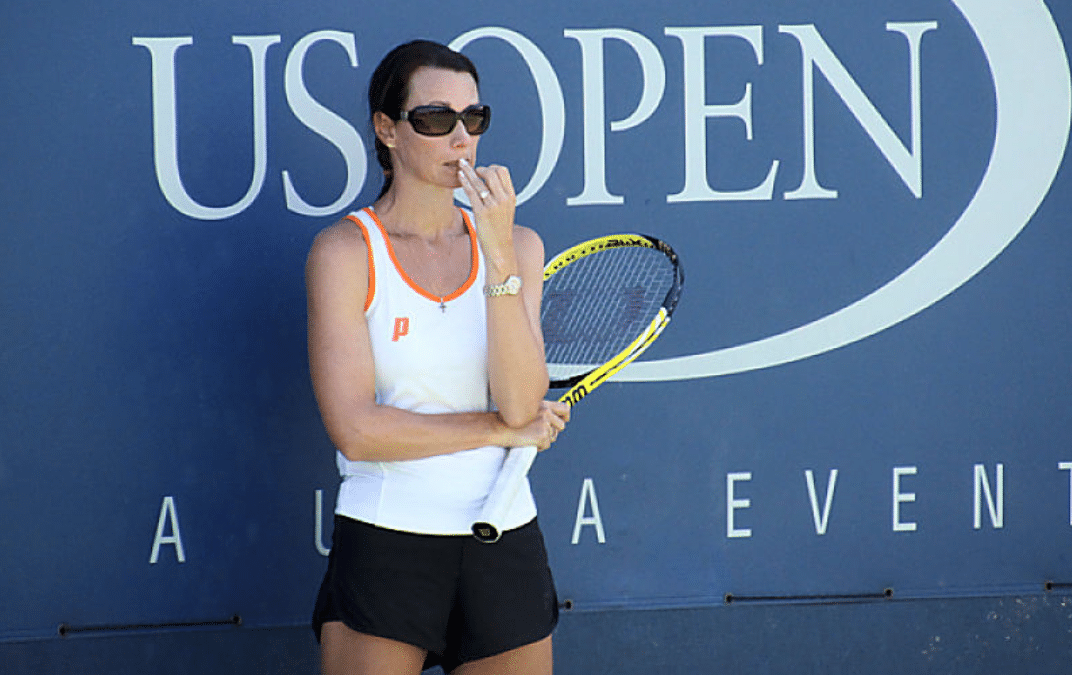As players rises up the ranks in tennis, separation between the competition becomes harder and harder to come by. Every single professional tennis player is physically prepared, but the mental game is what sets certain players apart from the rest.
According to former WTA player Alina Jidkova, an intense focus on mental preparation is what allowed her to capture a number of notable wins over players such as Chanda Rubin, Jelena Jankovic, Mary Pierce, Samantha Stosur and even Serena Williams.
“I think one of the most important factors was preparation,” said Jidkova. “If you really believe that you can beat those types of players, then you’re halfway there.”
Jidkova acknowledges that she was never one of the strongest hitters in the game, which is why she relied on mental training to gain an extra edge over her competition. “With my game, I really had to be mentally and physically strong. Towards the end of my career, I got a little better mentally, which is why my best years came a bit later,” she explained.
While Jidkova did work with a mental coach, there is no replacement for the first-hand experience of a tough match. “I learned the most from my own experiences and my mental game became really strong,” she said.
One of the most notable learning experiences for Jidkova was the very first time she took the court against Serena Williams. She recalls being intimidated by Williams and losing quite easily. However, the outcome was much different the second time around.
“I think I believed a little more, and I told myself I was going to go out there and give it everything I had,” Jidkova reminisced. “I was so focused, that I don’t even remember a lot of it. It was a great experience because it was my biggest win. It gave me a lot of confidence. A win like that really gives you confidence as a player.”
Jidkova suffered an injury soon after her historic win over Williams in 2004, but returned to the professional stage for a few more years before officially retiring in 2010. Soon after finishing her career, she made an easy transition into coaching.
“The end of my career didn’t go the way I really wanted it to,” said Jidkova. “I felt like there were some things that I still wanted to do with it. Once I couldn’t play anymore and I decided to retire, I thought that I could pass on my experiences to other players.”
Not long after retiring, she received a call out of the blue from Galina Voskoboeva, who asked Jidkova to be her coach. “We started working with her when she was ranked 600 or 700, and in matter of a year and half, she reached No. 42 in the world. I learned a lot from that experience. I realized that I was good at coaching and should continue doing it,” she explained.
Jidkova’s professional coaching career took a hiatus with the birth of her children, but she still spends time working with juniors and those looking to play at the collegiate level. Recently, she worked with Kaia Kanepi, guiding her from qualifying all the way to the quarterfinals of the US Open as she became the first player in modern US Open history to accomplish that feat. “I really enjoy coaching. I really enjoy passing my experience on, and obviously when you have the results with your player, it feels as good as being on the court winning yourself,” she said.
Despite the great minds Jidkova was exposed to throughout her playing career, she was intent on developing her own unique coaching style. “I never wanted to model anyone else, I have my own way of doing things. I take an individual approach to every player I have because it all depends on the needs of the player. I try to keep things simple and honest with players. I think every coach should have their own individual style,” she said.
Jidkova incorporates her own experiences as a player when coaching her athletes, particularly her intense focus on the mental game. “When you play at a high level, it’s learning to take advantage of those few points here and there. I think that’s what counts, and again, it’s all about the mental aspects. It’s about knowing what to do in a specific moment because everyone plays well nowadays, everyone is physically fit. It’s finding those little tweaks here and there,” she explained.
“When I work with a player, I always try to find what those little tweaks can be. If they don’t have something, I try to create exercises in the moment to help them throughout the match while they’re playing top players,” said Jidkova.
Above all, Jidkova believes that patience and positivity are the keys to developing an athlete into the best player they can be.
“You have to be patient and you have to be positive because there are some days where your players are going to have their ups and downs. Keeping things simple and being patient are the best assets a coach can have.”

